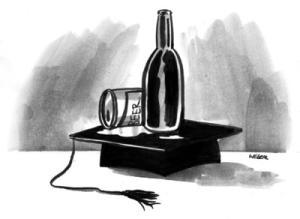- MENU
- HOME
- SEARCH
- WORLD
- MAIN
- AFRICA
- ASIA
- BALKANS
- EUROPE
- LATIN AMERICA
- MIDDLE EAST
- United Kingdom
- United States
- Argentina
- Australia
- Austria
- Benelux
- Brazil
- Canada
- China
- France
- Germany
- Greece
- Hungary
- India
- Indonesia
- Ireland
- Israel
- Italy
- Japan
- Korea
- Mexico
- New Zealand
- Pakistan
- Philippines
- Poland
- Russia
- South Africa
- Spain
- Taiwan
- Turkey
- USA
- BUSINESS
- WEALTH
- STOCKS
- TECH
- HEALTH
- LIFESTYLE
- ENTERTAINMENT
- SPORTS
- RSS
- iHaveNet.com
Recession's Impact on Women's Health

Sure, we're worried about the economy, but just how much of an impact is it having on women's health?
Actually, quite a lot, according to some new polls. One -- a Gallup survey of 1,031 women ages 18 to 44 conducted for the American College of Obstetricians and Gynecologists -- suggests that a growing number of us are putting off having babies and have become more careful about taking our birth control pills.
One in five women says she's more worried today about having an unintended pregnancy than she was a year ago; a full 17 percent of married women say they've put off plans to have a baby as a result of the economy.
More worrisome, the survey also showed that 1 in 7 women has postponed her annual ob-gyn checkup because of economic woes, which means a lot of women aren't getting Pap smears or breast exams.
I'm guessing many of them lost their health insurance along with their employment, and I can't help but wonder what impact this will have in terms of missed early detection of cervical cancers and breast cancers in addition to other health troubles. In fact, 15 percent of women also reported that they've cut back on medications because of their cost, which means they're playing a game of russian roulette with their health.
The economy has also taken a toll on our mental health, according to a survey released last week by the American Psychiatric Association. More than half of us nationwide have experienced a mental-health downturn along with the economic one. And those of us living in hard-hit areas like Clinton County, Ohio -- which has a 10.5 percent unemployment rate -- are faring worse. Nearly two thirds of women living there reported that they're experiencing chronic frustration, anxiety, irritability, depression, anger, and/or other signs of severe emotional stress. "I'm not surprised by these findings," says APA President Nada Stotland. "We thought it was important to corroborate what we thought was going on--that people living in places with high unemployment would be more likely to be suffering emotionally."
On the bright side, it's somewhat easier to cope when everyone around you is suffering.
"We do much better when our friends are in the same boat," says Stotland. "We tend to be more upset by discrepancies in wealth than actually being poor." It's also easier for people to provide support for one another when there's an equal sharing of burdens as opposed to feelings of guilt that can crop up when one friend has troubles and another is fine.
"The person without money troubles feels guilty and embarrassed for being unaffected by the recession," says Stotland, whereas the financially strapped friend feels guilty for venting or asking for a loan.
Fortunately, women in the APA survey reported that they were turning to healthful stress-relieving approaches to deal with the economic pressures.
More than three quarters of them said they were participating in more positive activities than they were six months ago. Those included spending time with family and friends, praying or attending religious services, exercising, and listening to music.
(The survey didn't ask about negative activities like overindulging in alcohol or food.)
Deborah Kotz, U.S. News & World Report
© U.S. News & World Report DISTRIBUTED BY TRIBUNE MEDIA SERVICES, INC.
WORLD | AFRICA | ASIA | EUROPE | LATIN AMERICA | MIDDLE EAST | UNITED STATES | ECONOMICS | EDUCATION | ENVIRONMENT | FOREIGN POLICY | POLITICS
Recession's Impact on Women's Health
Sure, we're worried about the economy, but just how much of an impact is it having on women's health? Actually, quite a lot